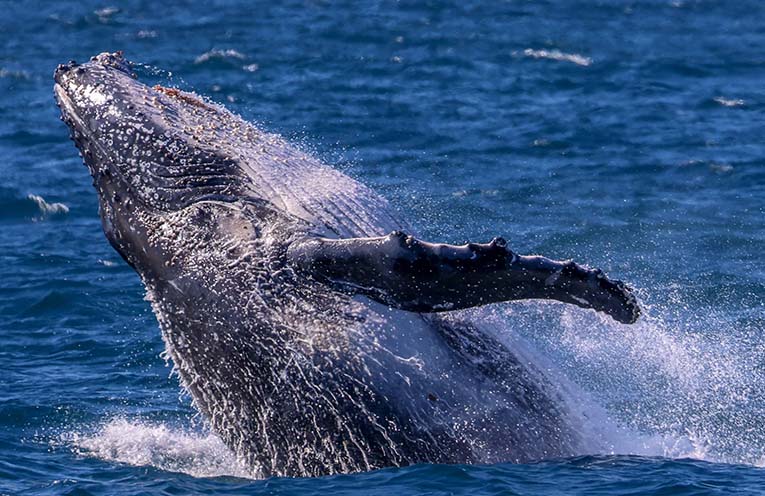
BOATERS on the Port Stephens coast are being advised not to get too close to whales as they make their annual trip north to warmer waters.
Multiple pods of humpbacks have been spotted off the coast from Sydney’s Royal National Park to Seal Rocks in recent days.
Photo opportunities have also been good from local shore based vantage points.
Migrating whales have been known to enter Port Stephens and have been sighted as far inland as Soldiers Point.
Marine Rescue NSW Commissioner Alex Barrell said boaters need to be aware of the marine mammals.
“As we are starting to see the whale migration along the NSW Coast, Marine Rescue is reminding boaters that there are rules and restrictions in place for the wellbeing of the animal but also the safety of boaters.
“Boaters are not to come within 100 metres of a whale or 300 metres of a whale and a calf.
“If a whale does surface near your vessel it is important that you cut your motors and slow down to a safe speed,” he said.
Commissioner Barrell is also reminding skippers not to approach whales from behind or to wait in front of their path.
The Marine Rescue NSW Commissioner said no more than three vessels at a time should approach whales and skippers should wait their turn.
“There will be plenty of time to enjoy these magnificent creatures during the migration season.
“As always if you are heading out on the water to view the whales please make sure that you Log On and Log Off with your local Marine Rescue base either via the Marine Rescue app or over VHF marine radio Channel 16,” Commissioner Barrell said.
Marine Rescue NSW is a volunteer based not-for-profit professional organisation dedicated to keeping boaters safe on the water and supporting local communities.
Travis Winks of Marine Rescue NSW told News Of The Area, “If a boater notices an entangled animal they should not approach or enter the water and attempt to disentangle it; instead they should call National Parks and Wildlife on 1300 072 757.
“The person making the report should also have details of the location and the direction that the entangled animal is travelling,” he said.
The same applies to entangled dolphins and seals.
By Marian SAMPSON
